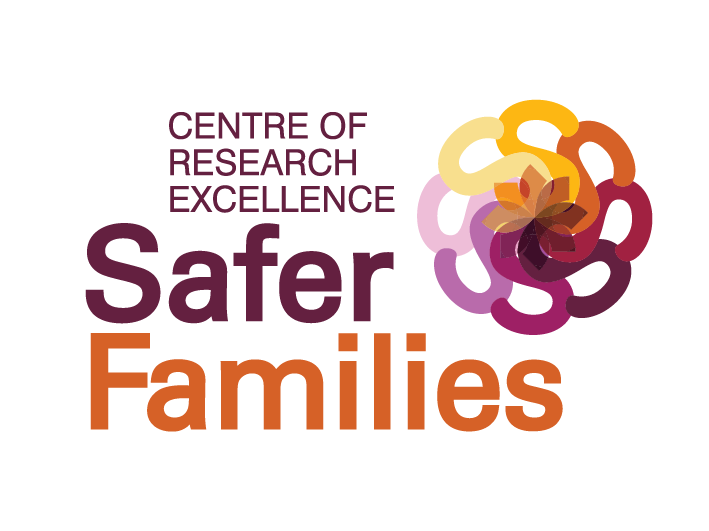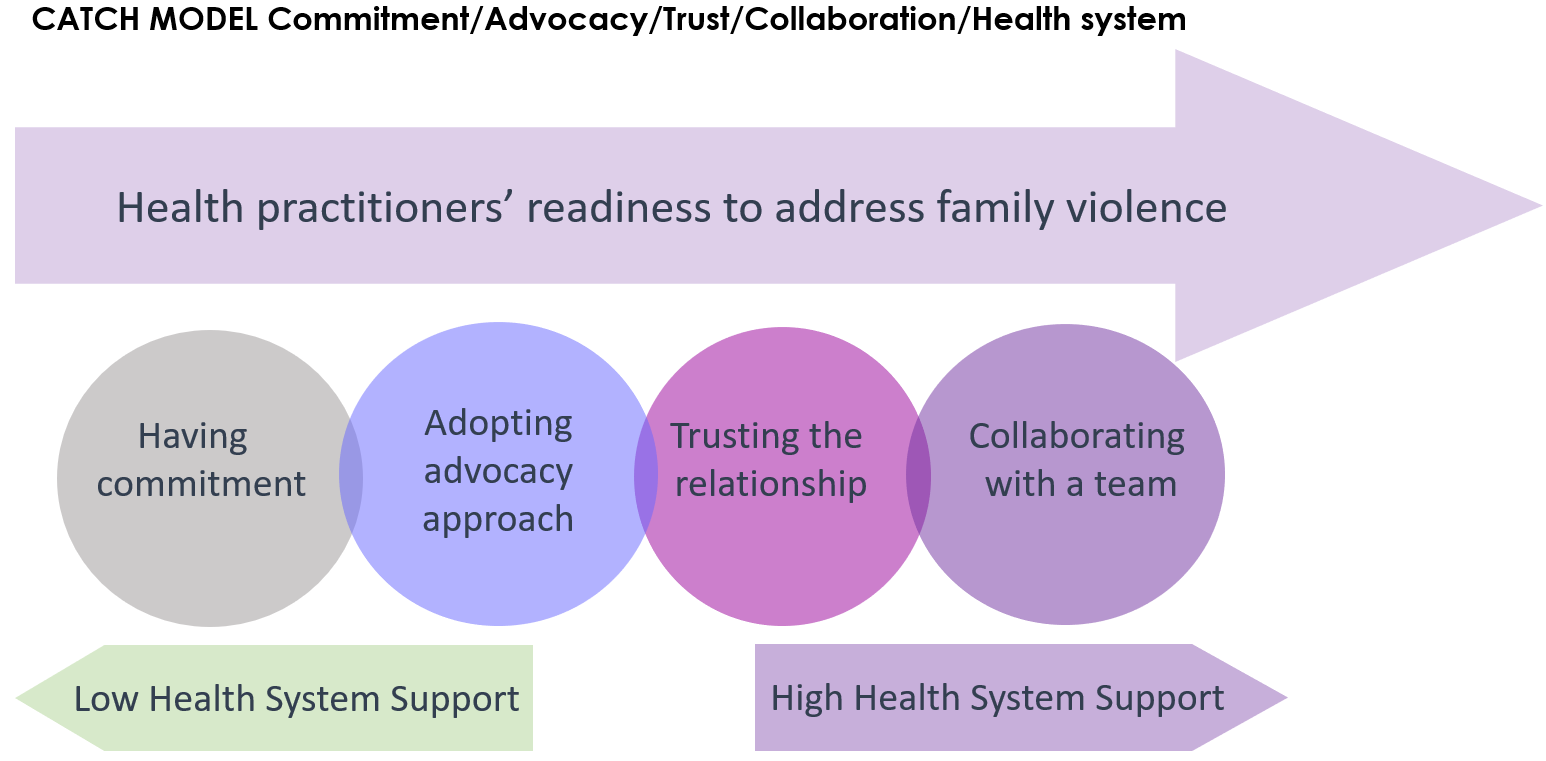CATCH Model
Health practitioner’s readiness model: The CATCH model
Hegarty, K., McKibbin, G., Hameed, M., Koziol-McLain, J., Feder, G., Tarzia, L., Hooker, L., (2020) Health practitioners' readiness to address domestic violence and abuse: A qualitative meta-synthesis. PLOS One.
What assists health professionals to be ready to identify and respond?
Factors increasing a health professional’s likelihood of identifying women experiencing Intimate Partner Violence (IPV) include recognising silent cues, having scripted questions, interdisciplinary collaboration and access to resources and referral services. Addressing readiness in education and training is more likely to enable clinicians to become physically and emotionally equipped for the work. A recent systematic review of 47 qualitative studies exploring health professionals’ readiness to address IPA provides some insight into areas on which to concentrate. See Health practitioners' readiness to address domestic violence and abuse: A qualitative meta-synthesis.
Five themes were identified as enhancing health practitioner readiness:
Having a commitment motivated from a human rights, child rights or a feminist lens or a personal experience of IPA ;
Adopting an advocacy approach with survivors giving positive feedback;
Trusting the relationship in the health setting is ideal for the work;
Collaborating with a team; and
Being supported by the health system.


